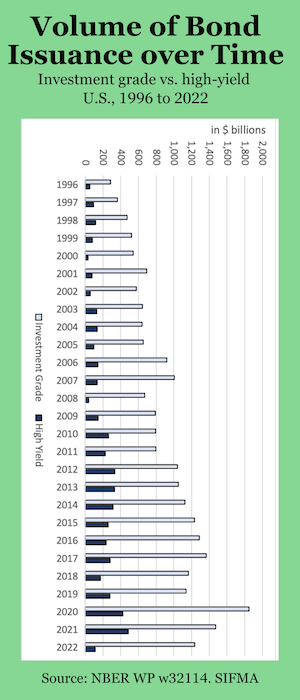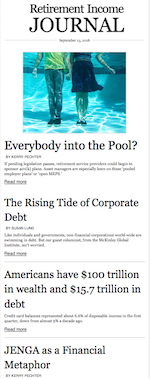Allianz Life discovers new client demographic: ‘Post-crash Skeptics’
About 20% of Boomers and “Gen X” generation members are “post-crash skeptics” who have suffered at least six major effects of the 2008 financial crisis and whose financial outlook was permanently altered by it, a new survey by Allianz Life shows.
“This group appears to suffer from a significant psychological impact on their financial attitudes and behaviors, including lost confidence in financial institutions and a switch to more conservative investments,” said the survey, entitled “Generations Apart.”
The survey canvassed 1,000 baby boomers (ages 49-67) and 1,000 Gen Xers (ages 35-48). They were asked 13 questions regarding the 2008 market crash, including whether their home or 401(k) fell in value, whether they or a family member lost a job, and whether their savings and/or retirement planning were affected.
About 83% of post-crash skeptics (versus 58% of the entire survey group) said they were more cautious now. They were about twice as likely to say they lost confidence in financial institutions (77% versus 38%), that they had changed their view of the market to risky (67% versus 32%), and that they had switched to more conservative investments or financial products (43% versus 22%).
Half of post-crash skeptics reported taking on more debt after the crash (compared to 23% of the total respondents) and 41% (versus 15%) reported that they or a partner had lost a job. Four in 10 post-crash skeptics said they’d stopped saving for retirement since the crash—more than three times the rate of Gen Xers and boomers overall. More than half (52%) of post-crash skeptics are “more pessimistic” about their chances for a successful retirement, versus only 39% of the total group.
How some actively-managed funds can reduce sequence risk: Capital Group
A low expense ratio, high manager ownership and a low downside capture ratio, which measures how a fund has fared relative to the market during downturns, are the three most critical factors to consider when selecting retirement investments, according to a new study by the American Funds, a unit of Capital Group.
Over the last 20 years, “actively managed equity funds sharing these three factors significantly outpaced indexes and active peers in a withdrawal scenario,” the study showed.
The proprietary study examined actively managed U.S. and foreign large-cap equity funds, Moderate Allocation funds (mix of U.S. stocks and bonds) and World Allocation funds (mix of global stocks and bonds), as categorized by Morningstar.
The research showed that, after accounting for regular withdrawals, funds sharing the three critical factors collectively outpaced indexes over the last 20 years, a period that includes the dot-com and financial crisis downturns. The same was true when looking at rolling 10-year periods within that same time frame.
Market downturns can be particularly harmful to retirees because they are drawing regular income from their portfolios and, without a salary to make up for losses, they could suffer serious setbacks.
The study, titled Key Steps to Retirement Success: How to Seek Greater Wealth and Downside Resilience, looked at a hypothetical 65-year-old retiring with $500,000 in savings in 1995, with a plan to withdraw 4% initially each year (increasing by 3% annually to account for inflation).
A portfolio split between Moderate Allocation funds and World Allocation funds sharing the three factors would have generated 85% more wealth than a blended index after 20 years. This investor would have been able to withdraw a total of about $537,000 over this period, with $1.7 million left over.
“This portfolio beat the index while experiencing less volatility (as measured by standard deviation) and greater risk-adjusted returns (as measured by Sharpe ratio),” said the American Funds release. “A similar portfolio of funds managed by American Funds would have generated 105% more ending wealth than the index leaving the investor with $1.9 million at the end of the period.”
Pershing’s Retirement Plan Network adds four new investment models
Four investment model providers—3D Asset Management, Efficient Market Advisors, Morningstar Investment Services, Inc. and Wilshire Associates Inc.—have joined Pershing LLC’s Retirement Plan Network, the BNY Mellon unit announced this week.
Plan advisors who wish to manage their own investment options can use Pershing’s Retirement Model Manager, which allows them to create and manage models across multiple recordkeepers and plans without having to log into separate systems, said a Pershing release.
Other solutions available on the platform include an integrated network of independent recordkeepers, investment products, retirement plan tools and practice management solutions, Pershing said.
© 2015 RIJ Publishing LLC. All rights reserved.


